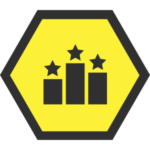WPBUILDSPODCAST
WPBUILDSPODCAST
with NATHAN WRIGLEY
with NATHAN WRIGLEY
A WordPress podcast packed full of things that you either don’t want to know or are clever enough to work out that we just made up!
Stay updated
Coming up…
Some dates for your diary.
‘Speed It Up’ Show #5
Join us live on Thurs 23rd November 2023.
3pm UK – 10am Eastern – 7am Pacific.
Is your website slow? Join us as Sabrina Zeidan explains why that might be. Submit your site.
4pm UTC / 12pm Eastern / 9am Pacific

‘Speed It Up’ Show #6
Join us live on Thurs 30th November 2023.
3pm UK – 10am Eastern – 7am Pacific.
Is your website slow? Join us as Sabrina Zeidan explains why that might be. Submit your site.
4pm UTC / 12pm Eastern / 9am Pacific

The Latest Episodes

457 – Building a human-centred web by saying NO to AI: Andy Bell on ethics, agency life, CSS and the open web
In this episode, Nathan Wrigley chats with Andy Bell, an expert in CSS and web design, about his journey from traditional design to becoming a sought-after CSS specialist. They discuss the evolution of CSS, the importance of leaning into web standards, and the challenges of agency work with high-profile clients. Andy also opens up about a tough 2025, the impact of AI on the industry, his agency’s anti-AI stance, and the value of authenticity and community in tech. Go listen…

This Week in WordPress #367
In this lively episode of TWiW, the panel dives into a range of WordPress topics, from the excitement around WordPress 7.0 Beta 1 and collaborative editing to hot debates about JavaScript usage and the dominance of Cloudflare. The conversation also covers AI’s expanding role in the ecosystem, open-source developments, cybersecurity concerns, and the importance of password managers. The episode is filled with community updates, a look at new tools, and plenty of lighthearted moments, including an ongoing joke about organising a rap battle showdown. Go listen…
WP Builds Goodness includes…

This Week in WordPress

WordPress Deals

The WP Builds Podcast

Giveaways

Webinars
READY TO ERM… GET A NEWSLETTER FROM US?
JOIN THE WP BUILDS COMMUNITY
DO IT, CLICKING THIS BUTTON WILL BE FUN!Recent ‘WP Builds Podcast’ Episodes

456 – WordPress vulnerabilities and the power of AI-powered malware detection
In this WP Builds episode, Nathan Wrigley talks with Thomas Raef about WordPress website security. Thomas shares his journey founding We Watch Your Website, discusses the prevalence of attacks on US WordPress sites, and explores how hackers increasingly use stolen credentials and AI-powered methods. The episode gets into AI tools for both attackers and defenders, highlighting strategies like behavioural analysis and other mathematical things I don’t understand! It wraps up with advice on implementing security measures like 2FA and device trust, and the ongoing AI “arms race” in cybersecurity. Go listen…

455 – Inside podcasting’s evolution: Seth Goldstein on trends, tools, and finding your audience
In this episode, Nathan Wrigley chats with podcasting veteran Seth Goldstein about his 15+ years in the industry. They discuss how easy podcasting has become, the importance of having a plan and process, and how podcasts can serve brands and businesses beyond immediate monetisation. Seth shares insights on podcast production, discoverability, the role of websites and WordPress, pitfalls of AI-generated podcasts, and why authentic personality keeps listeners engaged. They also touch on the value of process documentation, niche audiences, and why starting small and staying consistent is key to podcast success.

454 – Innovative serverless solutions for WordPress with Carl Alexander and Paul Carter
In this episode, Nathan Wrigley talks with Carl Alexander, creator of Ymir (a scalable WordPress hosting technology), and Paul Carter from BuiltFast, about their new partnership. They discuss Carl’s perseverance in developing Ymir, the technical benefits it brings to scalable WordPress hosting, and how BuiltFast plans to make this technology accessible to more users. The episode explores the changing expectations of customers and hosting companies, the need for invisible, reliable scalability, and how this collaboration aims to remove server limitations for ambitious WordPress projects. Go listen…

453 – Does WordPress offer anything to a younger audience? With Taylor Drayson
In this episode, Nathan Wrigley chats with Taylor Drayson, a young WordPress professional who shares his journey into web development, inspired by his self-employed father. Taylor discusses projects like WP Extended, a modular plugin for WordPress agencies, and Snippet Club, his membership site offering code snippets and tutorials. He also talks about his work with WP Managed Ninja, managing community feedback and product improvements. Together, they delve into WordPress’s changing demographics, tech debt, community culture, and its future appeal to younger generations. Go listen…
THE FRESH WP GOODNESS PODCAST
Chopped up like you would chop up a carrot, or perhaps a turnip… but not with a knife, because we, erm… chop things up with our podcast. So, WP Builds is like a big choppy, podcasty knife with lovely hexagons.
Recent ‘This Week in WordPress’ Episodes

This Week in WordPress #366
This episode of TWiW covers the latest in WordPress, with a strong focus on AI advancements, new products, and features expected in WordPress 7. The discussion includes updates on community events, challenges with in-person meetups post-pandemic, and the integration of AI tools for site management and design. The hosts also touch on debates around sponsored talks at WordCamps, the evolution of commercial and community aspects within WordPress, and recent plugin developments. Listeners get insights into both technical advancements and the shifting landscape of the WordPress community.

This Week in WordPress #365
This episode with Nathan Wrigley, Michelle Frechette, Marc Benzakein, Rhys Wynne explores the renewed importance of blogging and owning your content in 2026, discusses WordPress’s educational initiatives and their overlapping complexities, reviews recent updates including the 6.9.1 release and a new Wayback Machine plugin, and gets into the prevalence of AI in WordPress development. Panelists debate the ethics, utility, and future impacts of AI, the challenges of local meetups, and celebrate community efforts. The show features lively listener interaction and concludes with reflections on blogging versus social media, and ongoing WordPress community changes.

This Week in WordPress #364
Another week, and we’re bringing you the latest WordPress news from the last seven days, chunked into the usual helpful sections. Sadly, there was no “This Week in WordPress” Show, as the platform we use for the LIVE feed had a problem! Sorry about that!

This Week in WordPress #363
This Week in WordPress #363 with Nathan Wrigley, Jess Frick, Marc Benzakein, Marcus Burnette. This episode covers a range of WordPress-related topics, including the upcoming release of WordPress 6.9.1, the launch of a new centralised home for WordPress education initiatives, and trusted companies and individuals in the WordPress ecosystem. The panel also dives into the evolving role of AI in WordPress, discussing benchmarks, industry changes, and the impact of AI-driven advertising. Lighter moments feature fun conversations about corgis, alligators, and community experiences, all while emphasising the importance of collaboration, humility, and adapting to new technologies within the WordPress space.
Meet your host

NATHAN WRIGLEY
WordPress web site builder.
I run a web agency in the UK called Picture and Word. We work almost exclusively with WordPress, but have been know to use Drupal and Magento in the past.
I cannot spell the words, thepis, rangotls, or dufmertin.




